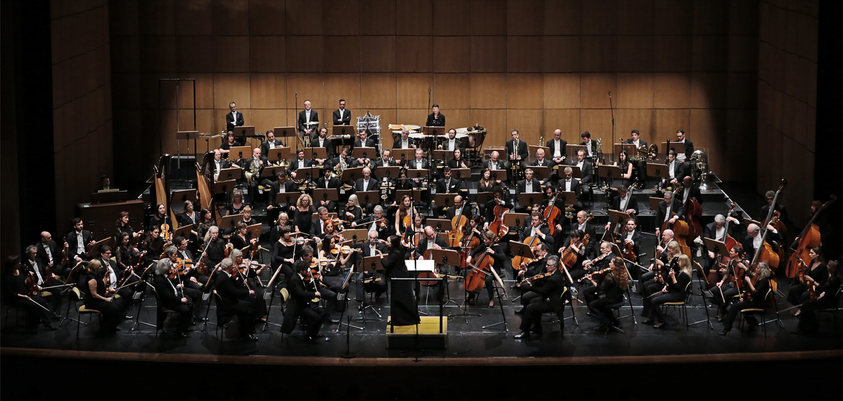Portuguese Symphony Orchestra and São Carlos National Theatre Choir
Te Deum by Bruckner

This version of the hymn Te Deum laudamus, a clear demonstration of the vehemence of Anton Bruckner’s Faith, was premiered in January 1886 at the Vienna Musikverein. Gustav Mahler, a great admirer of his, wrote in his copy of the score: ‘for choir, soloists, orchestra and organ ad libitum and for seekers of God and chastened hearts’. Bruckner considered the work the ‘pride of his life’. The beginning immediately places us in an intense environment, with the choir in unison proclaiming the praise of God in a strong tone, an environment that alternates with peaceful sections and others that are almost apocalyptic.
The other work on the program is Leoš Janáček’s Glagolitic Mass, premiered in Brno at the end of 1927 and considered one of the most notable and crucial religious works of the first half of the 20th century. The work follows the Ordinary of the Catholic Mass, but it uses the ancient Slavic language instead of the Latin. Like Bruckner’s work, it begins with an exuberant demonstration of Faith, musically embodied by triumphant fanfares dominated by brass. With this work, Janáček attempted to celebrate Slavic culture.
Programme
Leoš Janáček (1854-1928) Glagolitic Mass
Úvod – Einleitung – Introduction
Gospodi pomiluj – Herr, erbarme dich – Kyrie
Slava – Ehre – Gloria
Vĕruju – Ich glaube – Credo
Svet – Heilig – Sanctus
Agneče Božij – Lamm Gottes – Angus Dei
Varhany solo – Orgel solo – (Postludium)
Intrada (Exodus)
Anton Bruckner (1824-1896) Te Deum, WAB 45
Te deum laudamus – Allegro
Te ergo quaesumus – Moderato
Aeterna fac – Allegro, Feierlich, mit Kraft
Salvum fac populum tuum – Moderato
In te, Domine, speravi – Mäßig bewegt
Credits:
Soprano - Dora Rodrigues
Mezzo-soprano - Maria Luísa de Freitas
Tenor - Misha Didik
Bass - Jozef Benci
Conductor - Antonio Pirolli
São Carlos National Theatre Choir
(Principal conductor Giampaolo Vessella)
17,5 € to 112 €
Location: